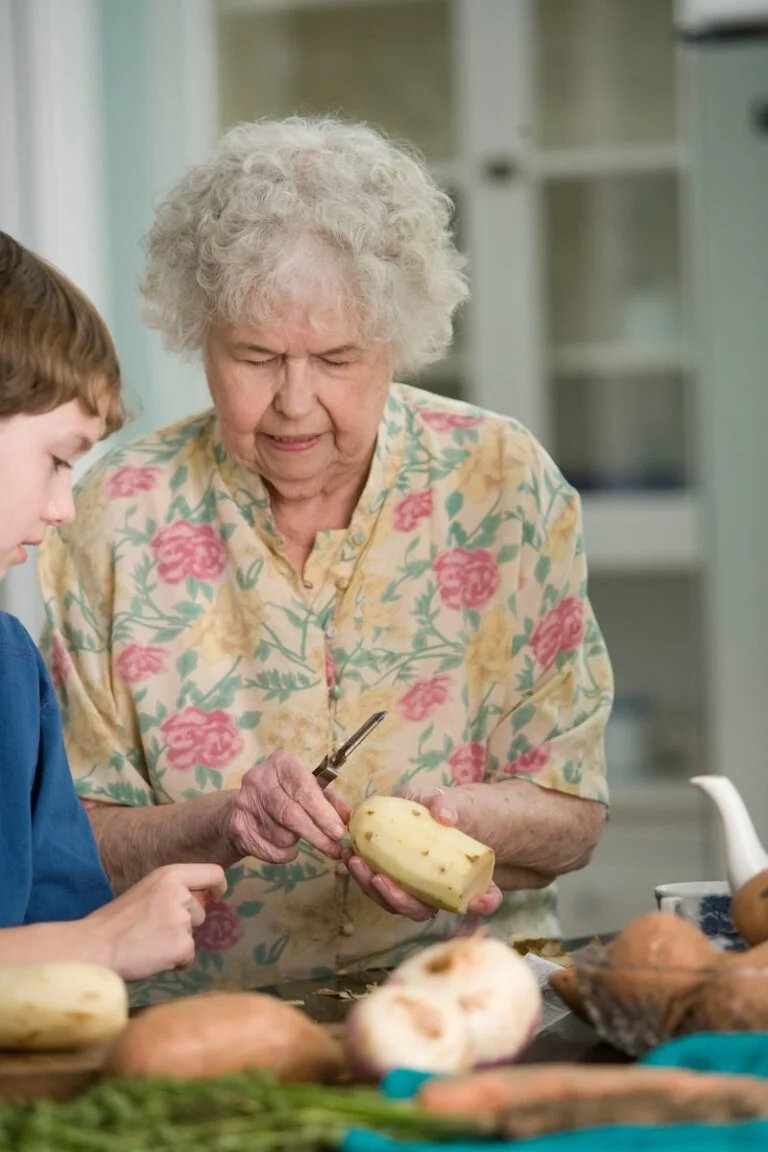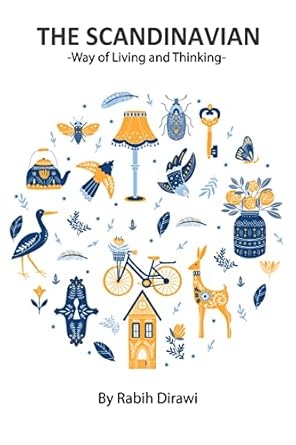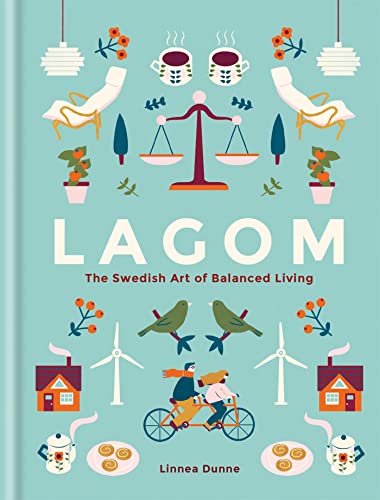
The Art Of Raising Happy Kids The Scandinavian Way
 Scandinavian countries have a reputation for being among the happiest in the world and for raising happy kids. One reason for this is their approach to parenting, which places a strong emphasis on creating a balanced, nurturing, and inclusive environment for children.
Scandinavian countries have a reputation for being among the happiest in the world and for raising happy kids. One reason for this is their approach to parenting, which places a strong emphasis on creating a balanced, nurturing, and inclusive environment for children.
Skandi parenting prioritizes the overall well-being of the child, and this philosophy has been adopted by many parents around the globe.
In this article, we will explore the principles and values associated with Skandi parenting, highlighting how they contribute to raising happy kids who are confident and well-rounded children. We will discuss the importance of family traditions, the emphasis on play, the promotion of gender equality, and the supportive parenting style prevalent in Scandinavian countries.
We will also touch on the Scandinavian education and childcare system, the balance between independence and security, and the importance of mental health and community support. All of these factors are important in how Scandinavians go about raising happy kids.
Key Takeaways
- Skandi parenting prioritises the overall well-being of the child
- Family traditions play a significant role in strengthening family bonds and promoting a sense of belonging
- Emphasis on play and spending time in nature is crucial for a child’s physical, cognitive, and emotional development
- Promoting gender equality and nurturing a supportive environment are key to raising well-rounded children
- Scandinavian education and childcare system emphasises child-centred learning and high-quality early childhood education.
The Importance of Family Traditions in Raising Happy Kids
Family traditions are a cornerstone of Skandi parenting, providing a sense of stability and continuity in a child’s life. Whether it’s celebrating holidays, cooking together, or simply spending quality time as a family, these traditions have a profound impact on a child’s emotional well-being and development.

Research shows that children who grow up with strong family traditions are more likely to have higher self-esteem, better academic performance, and a stronger sense of identity and belonging. In Skandi parenting, family traditions are seen as a way to create a sense of community and shared purpose, strengthening the bonds between family members.
But family traditions are not just important for children. They also provide a sense of connection and meaning for parents, helping them to feel more grounded and centred in their busy lives.
By taking the time to establish and uphold family traditions, parents can create a sense of rhythm and routine in their family life, making it easier to navigate the challenges and stressors of modern parenthood.
So, when it comes to raising happy kids, one of the key principles of Skandi parenting is the value placed on togetherness and shared experiences.

Family traditions help to cultivate this sense of togetherness, providing a way for parents and children to connect and bond on a deeper level. By incorporating traditions into your family’s life, you can create a sense of continuity and connection that will stay with your children throughout their lives.
Children who grow up with strong family traditions are more likely to have higher self-esteem, better academic performance, and a stronger sense of identity and belonging. In Skandi parenting, family traditions are viewed as a way to create a sense of community and shared purpose, strengthening the bonds between family members.
Family traditions are not just important for children. They also provide a sense of connection and meaning for parents.
By taking the time to establish and uphold family traditions, parents can create a sense of rhythm and routine in their family life, making it easier to navigate the challenges and stressors of modern parenthood.
This includes establishing rhythms in the day-to-day, as well as creating special, yearly events that the family can look forward to.

Examples of family traditions:
| Tradition | Description |
|---|---|
| Family meals | Gathering around the table for regular meals, enjoying good food and conversation |
| Holidays | Celebrating holidays such as Christmas, Easter, and Midsummer together as a family |
| Outdoor activities | Regularly spending time outside, whether it’s hiking, biking, or skiing |
| Game night | Regularly playing games as a family |
| Storytelling | Sharing stories and memories as a family, passing down traditions and family history |
| Volunteering | Engaging in community service and volunteer work as a family |
Overall, family traditions play an integral role in Scandi parenting, contributing to the overall well-being and development of children. Incorporating traditions into your family’s life can provide a sense of connection and meaning that will stay with your children throughout their lives.
Emphasis on Play and Outdoor Activities
Scandinavian parenting places a strong emphasis on play and outdoor activities as essential components of a child’s development. Research has shown that children who engage in free, unstructured play have better physical, cognitive, and emotional development than those who do not.

In Skandi parenting, children are encouraged to spend time outdoors every day, regardless of the weather. This practice is rooted in the belief that nature has a positive influence on a child’s well-being and development. Outdoor play allows children to explore their surroundings, develop their senses, and learn about the world around them.
Skandi parenting also values unstructured play, where children can create their own games and activities without adult guidance. This type of play promotes creativity, imagination, and problem-solving skills.
Whether it’s building forts, playing in the mud, or climbing trees, Skandi parenting emphasizes the importance of allowing children to play freely and explore their surroundings.
In addition to physical activity, Skandi parenting places a high value on social play. Children are encouraged to play with others, develop social skills, and build meaningful relationships with their peers. Through play, children learn how to communicate, negotiate and resolve conflicts, which are important skills for their future success.
Overall, Skandi parenting recognizes the importance of play and outdoor activities for a child’s development. By promoting unstructured play, time in nature, and social play, Scandi parenting fosters well-rounded, confident, and resilient children who are ready to take on the world.
Gender Equality in Parenting
Scandinavian parenting places great emphasis on gender equality in childcare responsibilities. This means that both parents share the responsibility of taking care of the children and household tasks equally.
Gender-neutral values are promoted, encouraging children to pursue their interests and develop skills regardless of whether they align with gender stereotypes. Boys are encouraged to participate in activities traditionally associated with girls, such as cooking and caring for dolls, while girls are encouraged to explore traditionally male-dominated fields such as engineering and sports.
This approach promotes a more equitable society, with children and adults alike taking on equal roles and responsibilities. It also helps to break down gender stereotypes and promotes a more inclusive society.
Supportive Parenting Style
In Scandinavian parenting, creating a supportive and nurturing environment for children is a top priority. This involves a parenting style that focuses on empathy, trust, and open communication. Parents aim to understand their children’s feelings and perspectives and provide them with emotional support. They also encourage their children to express themselves freely and provide a safe space for them to do so.
This approach helps children develop a sense of security and confidence, which is essential for their emotional and cognitive development. Children who grow up in a supportive environment are more likely to have positive self-esteem and build healthy relationships in the future. Moreover, parents who adopt a supportive parenting style can establish a strong bond with their children, which is crucial for their overall well-being.
Scandinavian parents also recognise the importance of setting boundaries and discipline in child-rearing. However, they do so in a way that is respectful and considerate of their children’s needs and emotions. They avoid using physical punishment or shaming as a form of discipline and instead use positive reinforcement and logical consequences to teach their children appropriate behaviour.
Education and Childcare System
Scandinavian countries have a well-regarded education and childcare system, which is a core component of Scandi parenting. The system places a strong emphasis on child-centred learning, inclusive education, and high-quality early childhood education as pillars of child development.
Childcare in Scandinavian countries is considered a public service, with access available to all families regardless of their income level. The early childhood education and care (ECEC) curriculum focuses on socialization, play-based learning, and emotional development, with an emphasis on nurturing the whole child.
The education system is one of the most progressive in the world, with a focus on individualized learning and student autonomy. The curriculum is designed to encourage creativity, critical thinking, and problem-solving skills, which are essential for success in today’s rapidly changing world.
One of the unique features of Scandinavian education is the emphasis on cooperative learning and teamwork, which helps children develop important social skills and emotional intelligence. The system also places a strong emphasis on inclusive education, ensuring that all children have access to equal educational opportunities regardless of their background or abilities.
Inclusive Education
Scandinavian countries have a strong commitment to inclusive education, and their education systems are designed to meet the diverse needs of all learners. Teachers receive extensive training in supporting children with special needs, and schools offer a range of support services to ensure that all students can reach their full potential.
Children with special needs are integrated into mainstream schools as much as possible, with additional support provided as needed. This approach helps to reduce stigma and promote acceptance and understanding of different abilities and backgrounds.
The Scandinavian education and childcare system provides a nurturing environment for children to grow and develop, with a focus on individualized learning, socialization, and emotional well-being. This holistic approach is a cornerstone of Scandi parenting and contributes to raising well-rounded and content children.
Balancing Independence and Security
One of the key principles of Skandi parenting is striking a balance between independence and security. This approach emphasizes the importance of allowing children to explore and take risks while providing a safe and supportive environment.
This balance is achieved through a combination of factors, including the promotion of unstructured playtime and outdoor activities, as well as an emphasis on encouraging self-reliance and decision-making skills.
Studies have shown that children who are given the freedom to explore and take risks are more likely to develop cognitive and physical skills, as well as a sense of self-confidence. However, it is equally important to provide a secure environment where children feel safe and supported in their exploration.
In Scandinavian countries, parents and caregivers work to create environments where children can take risks and make their own decisions, while still feeling supported and guided. This approach helps children develop a sense of independence and autonomy, while also providing a foundation of security and support.
By balancing independence and security, Skandi parenting creates an environment that allows children to flourish and grow into well-rounded and capable individuals.
Emphasis on Well-being and Mental Health
Skandi parenting prioritizes the mental health and well-being of children. It acknowledges the importance of emotional intelligence, self-care, and resilience in building strong, healthy individuals. By promoting a supportive and nurturing environment, children are encouraged to express their emotions freely and develop coping mechanisms to deal with difficult situations.
 One of the ways Skandi parenting achieves this is by teaching children self-care from an early age. This includes activities like meditation, mindfulness, and relaxation techniques to help manage stress and anxiety. Children are also encouraged to spend time outdoors, connecting with nature to boost their mental and physical well-being.
One of the ways Skandi parenting achieves this is by teaching children self-care from an early age. This includes activities like meditation, mindfulness, and relaxation techniques to help manage stress and anxiety. Children are also encouraged to spend time outdoors, connecting with nature to boost their mental and physical well-being.
Another aspect of Skandi parenting is teaching children emotional intelligence. Children are taught to acknowledge and express their emotions freely, learning how to communicate their feelings effectively. This creates a safe and supportive environment for children, where they can feel heard and understood, building their sense of self and self-worth.
Resilience is another key attribute promoted by Skandi parenting. By teaching children to be adaptable and flexible, they learn to embrace challenges and find solutions to overcome them. This mindset helps children develop a growth mindset, which is essential for building strong, resilient individuals.
“Promoting self-care, emotional intelligence and resilience in children is at the core of Scandi parenting”
Overall, Skandi parenting focuses on building strong, healthy individuals by prioritizing their mental health and well-being. By creating a nurturing and supportive environment, children are encouraged to express their emotions freely, learn self-care techniques, and develop resilience to overcome challenges. These skills and values are critical for ensuring children grow up to be content, well-rounded individuals.
Slow Living and Minimalism
Scandinavian parenting emphasises the value of simplicity and minimalism. The concept of slow living is central to this philosophy, focusing on quality over quantity. This approach encourages parents to create a calm and nurturing environment for their children by simplifying life and reducing clutter.
Minimalism is a way of life that advocates for living with only the essentials. This approach to parenting helps children develop a sense of appreciation for what they have rather than a desire for more. By reducing the distractions that come with excess material possessions, children can focus on other aspects of life, such as spending time with family and friends.
 Minimalism also encourages parents to focus on quality time with their children. Rather than overwhelming them with too many activities, parents can choose to spend more time engaging in unstructured play and outdoor activities. This approach promotes creativity and fosters a sense of independence in children, allowing them to develop their imaginations and self-confidence.
Minimalism also encourages parents to focus on quality time with their children. Rather than overwhelming them with too many activities, parents can choose to spend more time engaging in unstructured play and outdoor activities. This approach promotes creativity and fosters a sense of independence in children, allowing them to develop their imaginations and self-confidence.
Overall, the slow living and minimalism philosophy in Scandinavian parenting encourages parents to create a calm and nurturing environment for their children. It helps children develop an appreciation for quality over quantity and encourages creativity and independence. By promoting a simplified way of life, parents can help their children focus on the things that matter most in life.
Building Strong Social Connections
Skandi parenting places a strong emphasis on building relationships and social connections as an essential part of a child’s development. Children are encouraged to interact with a diverse range of people, promoting inclusivity and empathy.
 The close-knit community in Scandinavia also plays a significant role in supporting families and children. From parental leave policies to communal childcare, society values the importance of providing high-quality care for children.
The close-knit community in Scandinavia also plays a significant role in supporting families and children. From parental leave policies to communal childcare, society values the importance of providing high-quality care for children.
Research suggests that strong social connections positively impact a child’s cognitive and social development. In Skandi parenting, children are encouraged to make friends and build relationships through unstructured play, group activities, and shared experiences.
Parents foster social skills in their children by modelling a positive attitude towards building strong relationships. They teach children to respect and value others’ opinions and to embrace differences, creating a healthy and inclusive social environment.
Overall, building strong social connections is a fundamental aspect of Skandi parenting that contributes to a child’s well-being and development. By encouraging the development of social skills and promoting diversity and inclusivity, children are equipped to thrive in their relationships and communities.
Conclusion
Skandi parenting, with its emphasis on family traditions and child-centred values, is proving to be an effective approach to raising well-rounded, content children. By prioritising play, outdoor activities, and gender equality, Scandinavian parents are helping their children develop important physical, cognitive, and emotional skills.
The supportive parenting style, focus on education and childcare, and emphasis on both independence and security contribute to the overall well-being of children.
In addition, Skandi parenting encourages the prioritisation of mental health and emotional intelligence, slow living and minimalism, and fostering strong social connections.
By creating a nurturing environment for their children, Scandinavian parents are helping their children grow into resilient, empathetic, and confident adults.
Overall, implementing Skandi parenting principles and family traditions can have a significantly positive impact on child development and family life. By taking a holistic approach and prioritizing the well-being of their children, Scandinavian parents are setting their children up for success in all areas of life.
FAQ
Q: What is Skandi parenting?
A: Skandi parenting refers to the parenting approach influenced by Scandinavian values and principles. It emphasizes creating a nurturing and supportive environment, promoting gender equality, emphasizing play and outdoor activities, and prioritizing well-being and mental health.
Q: How can family traditions benefit children?
A: Family traditions play a vital role in Skandi parenting. They help strengthen family bonds, create a sense of belonging, and contribute to overall well-being. Family traditions provide children with a sense of identity and a foundation of values to carry into their adult lives.
Q: Why are play and outdoor activities emphasized in Skandi parenting?
A: Play and outdoor activities are highly valued in Scandinavian parenting. Unstructured play and spending time in nature have been shown to contribute to a child’s physical, cognitive, and emotional development. It promotes creativity, problem-solving skills, and a connection with the natural world.
Q: How does gender equality play a role in Skandi parenting?
A: Gender equality is a crucial aspect of Scandi parenting. It involves equal distribution of childcare responsibilities, promoting gender-neutral values, and challenging gender stereotypes. By encouraging equality, children learn inclusivity, respect, and the importance of sharing responsibilities.
Q: What is the supportive parenting style in Skandi parenting?
A: The supportive parenting style prevalent in Scandinavian countries focuses on creating a nurturing and supportive environment for children. It emphasizes empathy, trust, and open communication. This approach helps children develop strong emotional intelligence, resilience, and a sense of security.
Q: How does the Scandinavian education and childcare system differ?
A: The Scandinavian education and childcare system places a strong emphasis on child-centred learning and inclusive education. It prioritizes high-quality early childhood education, providing children with a supportive environment for holistic development and fostering a lifelong love of learning.
Q: How does Skandi parenting balance independence and security?
A: Scandinavian parenting encourages children to explore and take risks while providing a secure and supportive environment. Balancing independence and security helps children develop confidence, resilience, and decision-making skills, while still having a safety net of support.
Q: Why are well-being and mental health prioritised in Skandi parenting?
A: Scandi parenting recognises the importance of well-being and mental health in children’s overall development. It promotes self-care, emotional intelligence, and resilience. By prioritizing mental health, children learn to manage their emotions, form healthy relationships, and navigate life’s challenges with confidence.
Q: How do slow living and minimalism influence Skandi parenting?
A: Slow living and minimalism are significant influences in Scandi parenting. By simplifying life and focusing on quality over quantity, these principles create a calm and nurturing environment for children. It encourages mindfulness, appreciating the present moment, and reducing the stressors of a fast-paced society.
Q: Why are strong social connections important in Skandi parenting?
A: Building strong social connections is an essential aspect of Scandi parenting. It emphasizes community support, fostering social skills, and promoting inclusive and diverse friendships. Strong social connections contribute to a child’s sense of belonging, empathy, and cultural understanding.
- Gnome is a mythological creature from Scandinavian folklore, also known as a tomte or nisse makes the most thoughtful gi…
- This cute coffee gnome will please you with their kindness and charm.
- These coffee plush gnomes are ideal for farmhouse tiered tray decor.Suitable for placing on your table, desk, fireplace,…
- ✔ The MAMOI baby swing is equipped with appropriate protective measures. The fall protection at the MAMOI indoor swing o…
- ✔ The MAMOI indoor baby swing is made from ecological materials and of the highest quality. The seat is made of plywood …
- ✔ The design of the MAMOI baby swing door frame ensures special safety and durability. The maximum load capacity of the …






